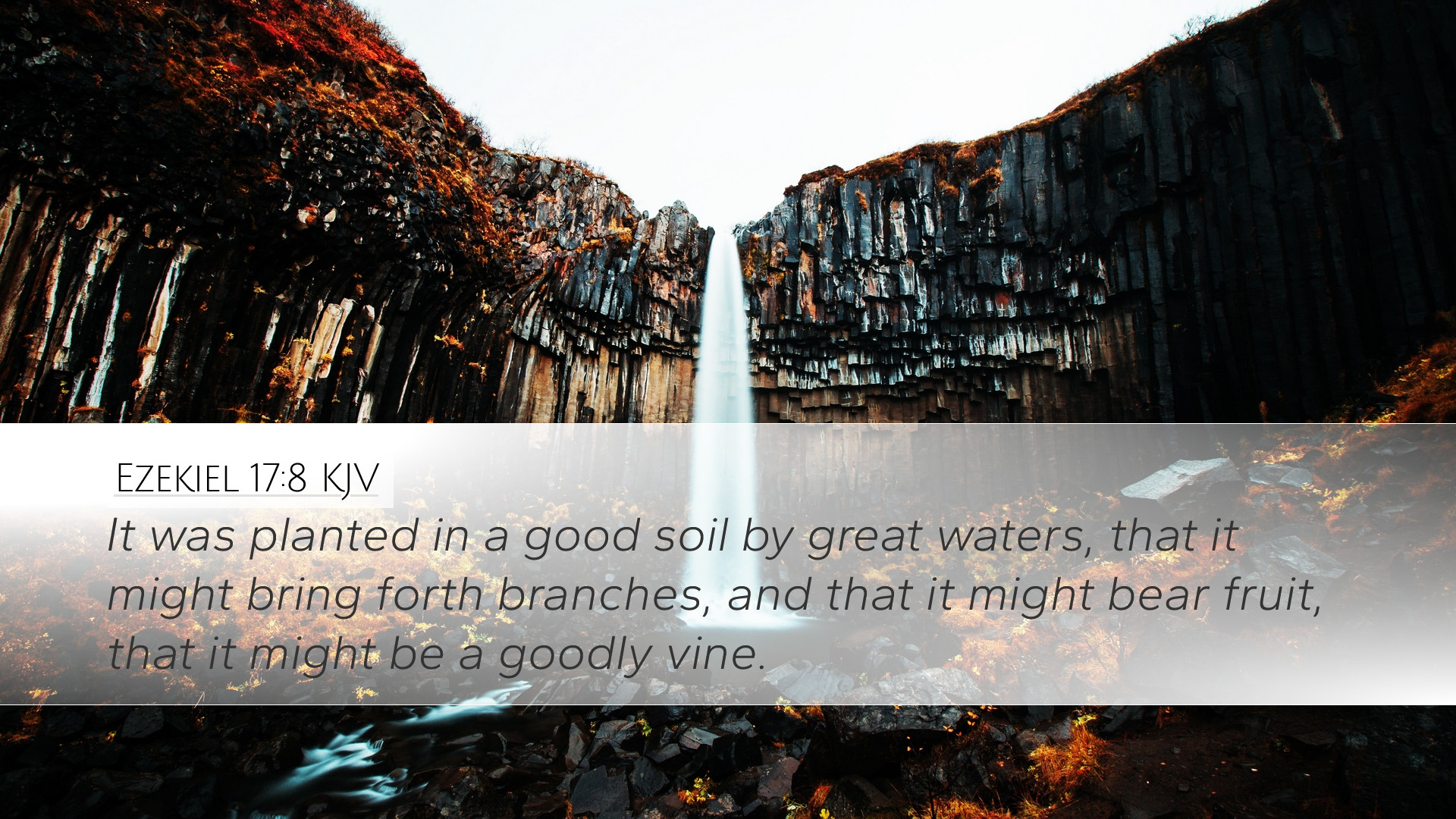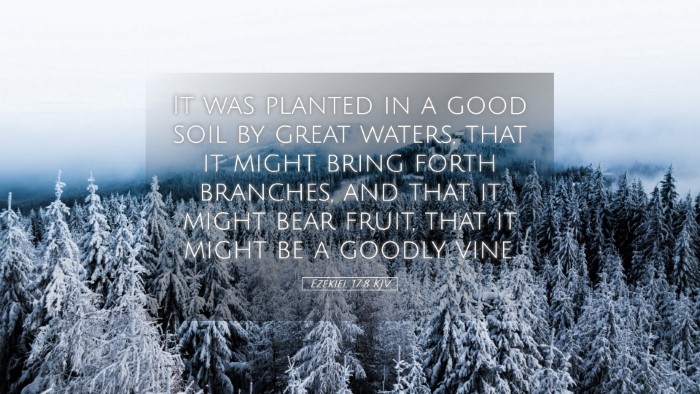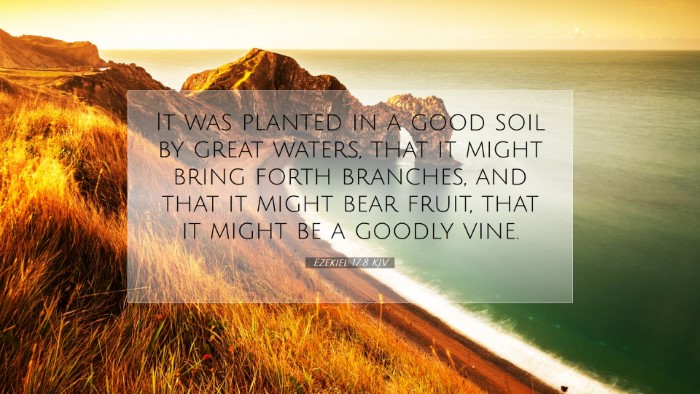Ezekiel 17:8 Commentary
Ezekiel 17:8 reads: "It had been planted in a good soil by great waters, that it might bring forth branches, and that it might bear fruit, that it might be a goodly vine." This verse serves as a rich metaphor that intertwines various themes of promise, divine providence, and human response. In analyzing this scripture, several public domain commentaries provide profound insights which are summarized below.
Contextual Background
Ezekiel, a prophet during the Babylonian exile, communicates through parables and vivid imagery, often employing nature to illustrate spiritual truths. In this particular passage, the imagery of a vine is critical, symbolizing Israel's national identity and its relationship with God. The context is essential; Ezekiel's audience was grappling with questions of identity and hope amidst their exile. This commentary delves into the wealth of meaning within Ezekiel 17:8, drawing from the insights of Matthew Henry, Albert Barnes, and Adam Clarke.
Interpretation and Insights
Matthew Henry's Commentary
Matthew Henry emphasizes the significance of the "good soil" and "great waters." He notes that the vine represents Israel, which was planted by God in a rich, fertile environment, signifying divine favor and blessing. The phrase "by great waters" indicates plentiful resources and spiritual nourishment provided by God to ensure growth and fruitfulness. Henry highlights that although the vine was given every opportunity to thrive, the onus remains on the nation itself to produce the expected fruit.
Albert Barnes' Commentary
Albert Barnes approaches the verse with a focus on the purpose of planting—"that it might bring forth branches, and that it might bear fruit." Barnes suggests that the intent of God's planting was not solely for survival but for abundance. He further illustrates that the expectation was for Israel to manifest the characteristics of a fruitful vine in their spiritual life. He expands the metaphor to discuss the role of covenant, highlighting that Israel's failure to produce fruit was a breach of their covenant responsibilities. Barnes provides a practical warning, reminding modern readers about the importance of bearing spiritual fruit as a reflection of one’s relationship with God.
Adam Clarke's Commentary
Adam Clarke provides a linguistic and theological analysis of the text, emphasizing the Hebrew terms for branches and fruit. He notes that these terms not only denote physical growth but also evoke images of prosperity and holiness. Clarke explores the theological implications of being planted by God, suggesting that divine planting represents a sacred responsibility. He cautions against complacency, urging the community to recognize their privileged position and the urgency of engaging actively in their faith. Clarke's insights underscore the necessity of recognizing God's call to fruitful living as the result of His merciful actions towards His people.
Theological Themes
- Divine Sovereignty: Each commentator acknowledges the role of God in planting the vine. The sovereignty of God ensures that His people are placed in a position where they can thrive spiritually.
- Human Responsibility: While God provides the soil and water, it is the duty of Israel (and believers today) to cultivate and nurture their faith to produce fruit.
- Fruitfulness as Evidence of Life: The imagery of fruitful branches speaks to the vital connection between faith and works—a central theme throughout Scripture.
- Covenantal Relationship: The vine imagery encapsulates the covenant relationship between God and His people, emphasizing the commitment required to maintain this relationship.
Practical Applications
The relevance of Ezekiel 17:8 extends beyond its historical context, resonating deeply with modern believers. The call to action includes:
- Reflect on Divine Provision: Consider the ways in which God has provided spiritual nourishment and resources in your life.
- Commit to Growth: Engage in practices that promote spiritual growth—prayer, worship, community involvement, and study of the Word.
- Bear Fruit: Deliberately seek to live out one’s faith in a way that reflects God’s character and purposes, recognizing that spiritual fruit is not merely for oneself but for the benefit of others.
Conclusion
Ezekiel 17:8 serves as a reminder of God’s faithfulness in establishing His people in a position of blessing and the imperative for them to respond by bearing fruit. By synthesizing insights from acknowledged commentaries, we discern a rich understanding of the balance between divine sovereignty and human responsibility, encouraging a more profound commitment to spiritual growth and fruitfulness.


